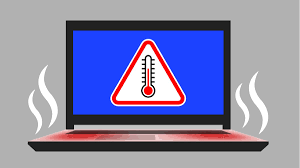What is one potential risk associated with a cryptocurrency hot wallet?
Cryptocurrency has revolutionized the world of finance, offering unprecedented levels of decentralization, security, and accessibility. However, with these benefits come inherent risks, particularly in the realm of storage and transaction management. One crucial aspect of cryptocurrency security is the management of hot wallets, which pose a unique set of challenges and vulnerabilities. In this article, we delve into one significant risk associated with cryptocurrency hot wallets: vulnerability to hacking.
Introduction
Cryptocurrency hot wallets serve as digital repositories for storing and facilitating transactions with cryptocurrencies. Unlike their cold wallet counterparts, which are offline storage solutions, hot wallets are connected to the internet, allowing for seamless transactions but also exposing them to potential security threats. Understanding the risks associated with hot wallets is paramount for individuals and businesses alike to safeguard their digital assets effectively.
What is a Cryptocurrency Hot Wallet?
A cryptocurrency hot wallet is a software-based storage solution designed to store digital assets securely while remaining connected to the internet. Hot wallets enable users to access their funds conveniently for transactions, making them ideal for frequent trading or day-to-day transactions. Examples of popular hot wallet providers include Coinbase, Binance, and Blockchain.com, each offering varying levels of security features and user functionalities.
Importance of Security in Cryptocurrency Transactions
With the increasing adoption of cryptocurrencies for various financial activities, the importance of security measures cannot be overstated. Cryptocurrency transactions involve the transfer of digital assets across decentralized networks, making them susceptible to various security threats, including hacking, phishing, and malware attacks. As such, prioritizing security in all aspects of cryptocurrency management is essential to mitigate potential risks effectively.
Understanding the Difference Between Hot and Cold Wallets
Differentiating between hot and cold wallets is fundamental to understanding the unique risks associated with each storage solution. Hot wallets, as mentioned earlier, are online storage solutions that offer convenience but are more vulnerable to hacking and cyber threats. In contrast, cold wallets, such as hardware wallets or paper wallets, are offline storage devices that provide enhanced security by keeping private keys offline.
One Potential Risk: Vulnerability to Hacking
Perhaps the most significant risk associated with cryptocurrency hot wallets is their susceptibility to hacking attempts. Hacking in the context of cryptocurrencies refers to unauthorized access to digital wallets or exchanges with the intent of stealing funds or sensitive information. Hot wallets, being connected to the internet, are prime targets for hackers seeking to exploit vulnerabilities in their security protocols.
Lack of Regulation and Oversight
Another factor contributing to the risk associated with cryptocurrency hot wallets is the lack of comprehensive regulation and oversight in the cryptocurrency industry. Unlike traditional financial institutions that are subject to stringent regulatory frameworks, the cryptocurrency market operates in a largely decentralized and unregulated environment, leaving users vulnerable to fraudulent activities and security breaches.
Human Error and Social Engineering Attacks
In addition to external threats such as hacking, human error and social engineering attacks pose significant risks to the security of cryptocurrency hot wallets. Common mistakes made by users, such as sharing sensitive information or falling victim to phishing scams, can compromise the integrity of hot wallet accounts and result in financial losses.
Importance of Multi-Signature Authentication
One effective strategy for mitigating the risk of unauthorized access to hot wallets is the implementation of multi-signature authentication. Multi-signature authentication requires multiple private keys to authorize transactions, thereby adding an extra layer of security and reducing the risk of funds being compromised in the event of a security breach.
Ensuring Regular Security Audits
Regular security audits are essential for identifying and addressing potential vulnerabilities in cryptocurrency hot wallets. By conducting thorough security audits on a periodic basis, wallet providers and users can proactively identify and mitigate security risks before they are exploited by malicious actors.
Implementing Strong Authentication Measures
Implementing strong authentication measures, such as two-factor authentication (2FA) and biometric authentication, can significantly enhance the security of cryptocurrency hot wallets. 2FA requires users to provide two forms of identification before accessing their wallets, making it more challenging for unauthorized individuals to gain access.
Strategies for Securing Private Keys
Safeguarding private keys is paramount for ensuring the security of cryptocurrency hot wallets. Users should utilize secure storage solutions, such as hardware wallets, to store their private keys offline and minimize the risk of unauthorized access or theft.
Importance of Keeping Software Updated
Regularly updating hot wallet software is critical for protecting against known vulnerabilities and exploits. Software updates often include patches and fixes for security vulnerabilities identified by developers or security researchers, making them essential for maintaining the integrity of hot wallet systems.
Educating Users on Security Best Practices
Educating users on security best practices is crucial for fostering a culture of security awareness and resilience in the cryptocurrency community. By providing comprehensive training and resources on topics such as password management, phishing awareness, and secure browsing habits, users can better protect themselves against potential security threats.
Utilization of Insurance Policies
As the cryptocurrency market continues to evolve, the availability of insurance options for cryptocurrency holdings is becoming increasingly common. Insurance policies tailored to the needs of cryptocurrency users can provide an additional layer of protection against potential losses resulting from hacking or security breaches.
Conclusion
In conclusion, while cryptocurrency hot wallets offer convenience and accessibility, they also pose significant risks due to their vulnerability to hacking and security breaches. By understanding the potential risks associated with hot wallets and implementing robust security measures, users can better protect their digital assets and minimize the likelihood of falling victim to cyber threats.









